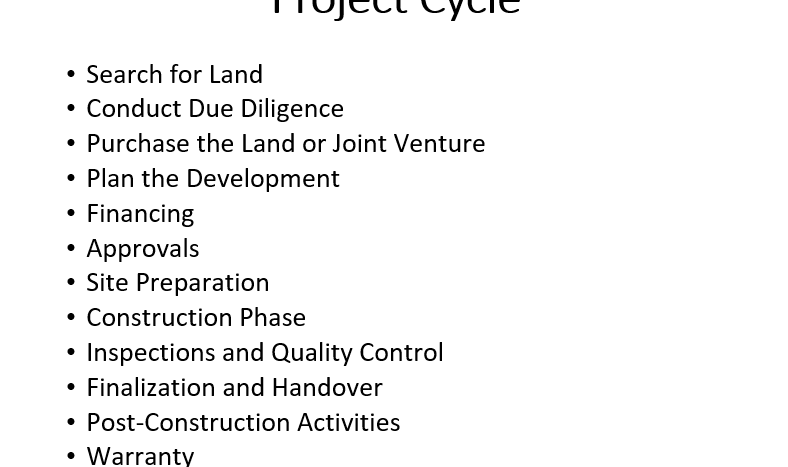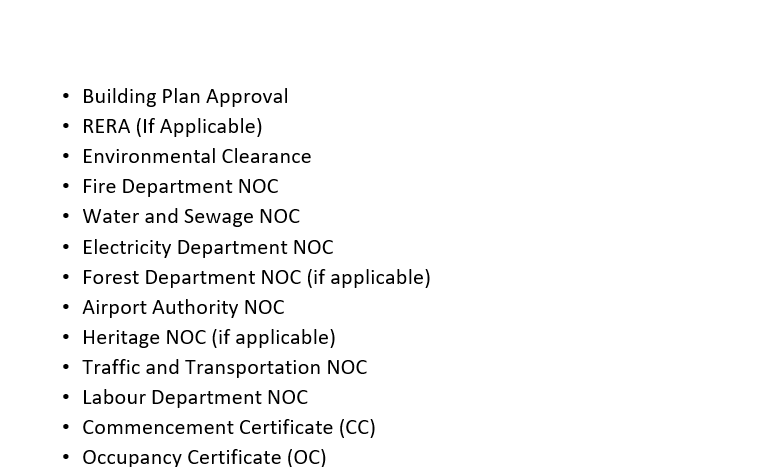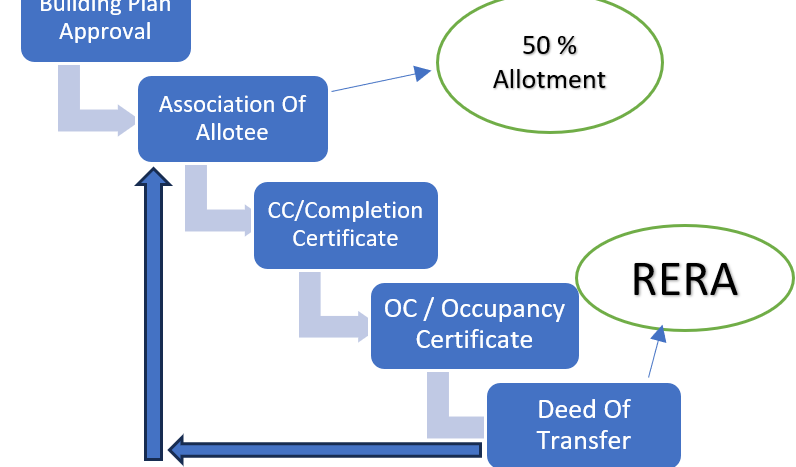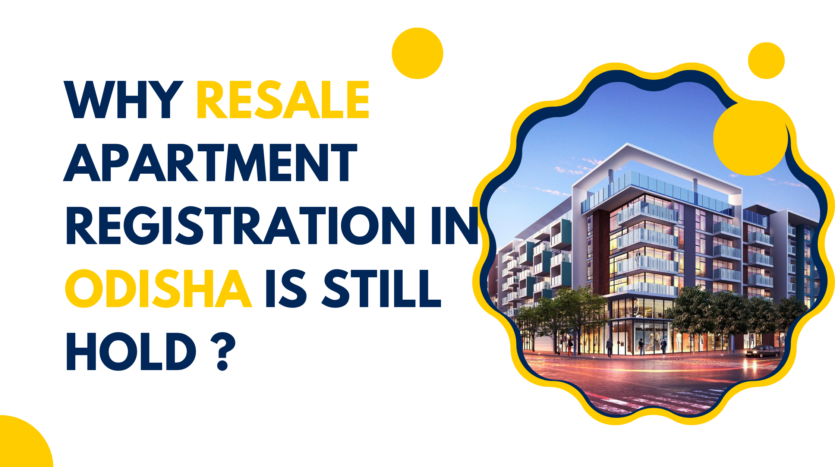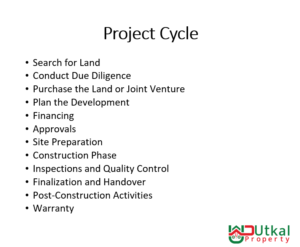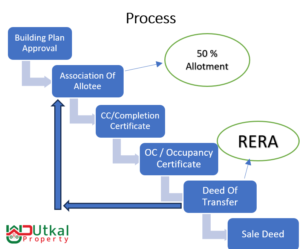Why Resale Apartment Registration in Odisha is Still Hold ?
The primary reason for the two-year hold on apartment registration in Odisha was the lack of a specific law or rule that aligned with the Real Estate (Regulation and Development) Act (RERA) 2016.
Here are few key factors contributing to the delay:
- RERA Compliance: The Orissa High Court directed the state government to enact a law that would ensure compliance with the RERA Act. This act mandates specific provisions for the registration and sale of apartments, including the transfer of common areas to the apartment owners’ association.
- Odisha Apartment (Ownership and Management) Bill: The state government introduced the Odisha Apartment (Ownership and Management) Bill in April 2023. However, it took some time to finalize and implement the necessary rules and regulations.
- Old Apartment Owners: The new rules posed challenges for owners of older apartments, as they may not have been built in accordance with the RERA Act. This led to discussions and negotiations regarding how to accommodate these existing properties.
Resale apartments delivered before the implementation of the Real Estate (Regulation and Development) Act (RERA) in Odisha are generally not held but to Register these Property, Society Formation Is mandatory.
To Understand this situation , We need to know different stages & approvals . So lets Discuss :
Initiate A project
-
Search for Land
The journey begins with identifying the perfect piece of land. This step is foundational, as the location can significantly impact the project’s viability. Consider factors like zoning laws, proximity to amenities, and market demand. Collaborating with real estate agents and local authorities can provide valuable insights.
-
Conduct Due Diligence
Once potential land is identified, conducting due diligence is imperative. This involves assessing the legal, environmental, and financial aspects of the land. Check for any legal encumbrances, perform soil tests, and evaluate the market trends. Due diligence ensures that you are making an informed decision and helps mitigate risks.
-
Purchase the Land or Joint Venture
After due diligence, you can proceed to purchase the land outright or enter into a joint venture with the landowner. Joint ventures can be beneficial if you’re looking to minimize initial capital outlay. Ensure that all agreements are legally sound and clearly outline the responsibilities and profit-sharing arrangements.
-
Plan the Development
Planning is the blueprint for your project. This phase includes designing the layout, securing architects, and planning the utilities and infrastructure. Engage with urban planners and local authorities to ensure compliance with zoning laws and building codes. A well-thought-out plan can streamline the subsequent phases of development.
-
Financing
Securing financing is often one of the most challenging aspects of real estate development. Explore various financing options such as bank loans, private investors, or crowdfunding. Create a detailed financial plan, including cost estimates, projected revenues, and a contingency fund to cover unexpected expenses.
-
Approvals
Before breaking ground, you need to obtain the necessary approvals from local authorities. This may include zoning approvals, building permits, environmental clearances, and utility connections. The approval process can be time-consuming, so it’s essential to start early and follow up regularly.
-
Site Preparation
With approvals in hand, site preparation can begin. This involves clearing the land, grading, and setting up temporary utilities. Site preparation is critical for laying a strong foundation and ensuring that the construction phase proceeds smoothly.
-
Construction Phase
The construction phase is where your vision starts to take shape. Managing the construction process requires coordinating with contractors, suppliers, and workers. Regular site visits and meetings are crucial to keep the project on schedule and within budget.
-
Inspections and Quality Control
Throughout the construction phase, regular inspections are necessary to ensure that the work meets quality standards and adheres to building codes. Engage independent inspectors to carry out quality control checks at various stages of construction. This helps in identifying and rectifying any issues early on.
-
Finalization and Handover
As construction nears completion, focus shifts to finalizing the project. This includes finishing touches like landscaping, installing fixtures, and ensuring all systems are operational. Once completed, the property is handed over to the buyers or tenants. Ensure that all legal documents, such as occupancy certificates, are in order before handover.
-
Post-Construction Activities
The completion of the construction phase doesn’t mark the end of your responsibilities. Post-construction activities include property management, addressing any immediate issues that arise, and ensuring that the property is fully functional. This phase is vital for maintaining the reputation of your project and ensuring customer satisfaction.
-
Warranty
Offering a warranty on the property can build confidence . This warranty typically covers structural integrity and major systems for a specified period. The defect liability period, also known as home warranty, has been set to five years (5 Years) from the date of possession under Clause 14 (3) of the Real Estate (Regulation and Development) Act, 2016 (RERA).
Approvals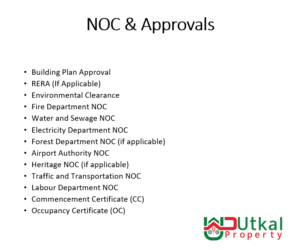
-
Building Plan Approval
The first and perhaps the most critical step in the real estate development process is obtaining Building Plan Approval. This approval is granted by the local municipal authority and ensures that the proposed construction aligns with the area’s zoning laws, building codes, and regulations. The building plan must include detailed architectural drawings, structural designs, and land use plans. Without this approval, any construction activity is illegal and subject to penalties. Building Plan Approval is the foundation upon which the legality of the entire project rests.
-
Association of Allottees
The Association of Allottees plays a vital role in the governance and maintenance of a real estate project. Once a significant portion of the project is sold, developers are required to form an Association of Allottees, which comprises all the homebuyers or unit owners in the project. This association is responsible for managing the common areas, ensuring maintenance, and representing the interests of all the members. It serves as a bridge between the developer and the homeowners, ensuring transparency and accountability in the project’s ongoing management.
-
Commencement Certificate (CC) / Completion Certificate
Before any construction begins, developers must obtain a Commencement Certificate (CC) from the local authority. The CC certifies that the developer has received all necessary approvals and that the project complies with zoning regulations, building codes, and other legal requirements. Without a CC, starting construction is illegal.
Once the construction is complete, the developer must secure a Completion Certificate from the local authority. This certificate confirms that the building has been constructed as per the approved plans and meets all necessary safety and regulatory standards. The Completion Certificate is crucial for obtaining the Occupancy Certificate and for the legal transfer of the property to buyers. That Helps Apartment Registration in Odisha .
-
Occupancy Certificate (OC)
The Occupancy Certificate (OC) is issued by the local authority after a thorough inspection of the completed project. The OC certifies that the building is fit for occupancy and has been constructed in accordance with the approved plans and building codes. It ensures that all safety standards, such as fire safety, structural integrity, and sanitation, have been met. Without an OC, the property cannot be legally occupied or sold. It is a crucial document that protects the interests of the homebuyers and ensures the project’s legal compliance & Apartment Registration in Odisha Starts.
-
Deed of Transfer
The Deed of Transfer is a legal document that signifies the transfer of ownership of common areas and facilities from the developer to the Association of Allottees. This document is typically executed after the completion of the project and the formation of the association. The Deed of Transfer ensures that the common areas, such as gardens, lobbies, and recreational spaces, are legally transferred to the association, which will manage and maintain them on behalf of all the residents.
-
Sale Deed
The Sale Deed is the final legal document that completes the transfer of ownership of an individual unit from the developer to the buyer. This deed is executed after the issuance of the Occupancy Certificate and the payment of all dues by the buyer. The Sale Deed ( Apartment Registration in Odisha) includes details about the property, the agreed-upon sale price, and the terms and conditions of the sale. It is registered with the local sub-registrar’s office, making the transfer of ownership legally binding. The Sale Deed is the ultimate proof of ownership and is essential for any future transactions involving the property.
The Impact of RERA and Odisha Apartment Act on Bhubaneswar’s Real Estate: Navigating the Transition to Housing Societies
Before the implementation of the Real Estate (Regulation and Development) Act (RERA) in 2017, the real estate in Bhubaneswar was marked by significant regulatory gaps. One of the most prominent issues was the lack of Occupancy Certificates (OC) for many apartments, despite the presence of registered societies. These societies were often registered as welfare societies rather than housing societies, creating complications in property ownership and management. This is also a main reason why Why Resale Apartment Registration in Odisha is Still Hold .
The Pre-2017 Scenario: Regulatory Loopholes and Ownership Confusion for Apartment Registration in Odisha
Before RERA, many apartment complexes in Bhubaneswar were registered as welfare societies under the Odisha Societies Registration Act. This type of registration, however, did not fulfil the requirements of the Odisha Apartment Ownership Act, which mandates that apartments should be registered as housing societies. The distinction between these two types of societies is crucial. Welfare societies are primarily social or cultural organizations, while housing societies are legally recognized entities that manage the ownership and maintenance of residential complexes.
As a result of this misalignment, the common areas of many apartment complexes—such as corridors, lobbies, parks, and other amenities—remained in the name of the builder or landowner rather than being transferred to the society representing the apartment owners. This situation led to confusion and disputes over the management and ownership of these common areas, leaving apartment owners without clear rights or control over their property.
The Role of RERA: A Catalyst for Change
The introduction of RERA in 2017 marked a turning point for the real estate sector in Bhubaneswar. RERA was designed to bring transparency, accountability, and fairness to real estate transactions, offering protection to homebuyers from the previously unchecked practices of developers.
One of the key requirements under RERA is the mandatory registration of real estate projects, including the need for developers to obtain an OC before handing over possession to buyers. This regulatory framework has significantly improved the accountability of builders and developers, ensuring that buyers receive properties that comply with all legal requirements.
The Transition to Housing Societies: A Necessary Step
Under the Odisha Apartment Ownership Act, all apartment complexes must be registered as housing societies. This legal structure is essential because it allows for the proper transfer of ownership of common areas from the builder or landowner to the apartment owners’ association. Only when this transfer is complete can the society legally manage and maintain these areas, providing a secure and transparent ownership structure for all residents.
For many apartment complexes in Bhubaneswar that were previously registered as welfare societies, this means undergoing a process of re-registration as housing societies. This process involves not only legal formalities but also the proper handing over of common areas to the newly formed housing society. Without this step, apartment owners cannot execute a valid sale deed, leaving their property rights in limbo.
Challenges and the Path Forward
The transition from welfare societies to housing societies, while necessary, is not without its challenges. It requires cooperation from builders, landowners, and apartment owners, along with a clear understanding of the legal implications. Additionally, the re-registration process can be time-consuming and complex, requiring careful navigation of legal and administrative procedures.
However, this transition is crucial for securing the rights of apartment owners and ensuring the proper management of residential complexes in Bhubaneswar. By registering as housing societies and taking control of common areas, residents can gain the legal authority needed to maintain and manage their properties effectively.
Conclusion: Embracing Change for a Secure Future
The implementation of RERA and the enforcement of the Odisha Apartment Ownership Act have brought much-needed reforms to Bhubaneswar’s real estate sector. While the transition from welfare societies to housing societies presents challenges, it is a necessary step towards ensuring the rights and security of apartment owners & Path to Apartment Registration in Odisha .
By embracing these changes and working together, builders, landowners, and residents can create a more transparent, accountable, and fair real estate environment in Bhubaneswar & Resale Apartment Registration in Odisha May Start . This shift not only protects the interests of homebuyers but also lays the foundation for a more secure and prosperous future for the city’s residential communities.
If you’re considering buying or selling an apartment in Odisha, it’s advisable to consult with a local real estate agent or legal professional to get the most up-to-date information on the registration process and any potential issues.

